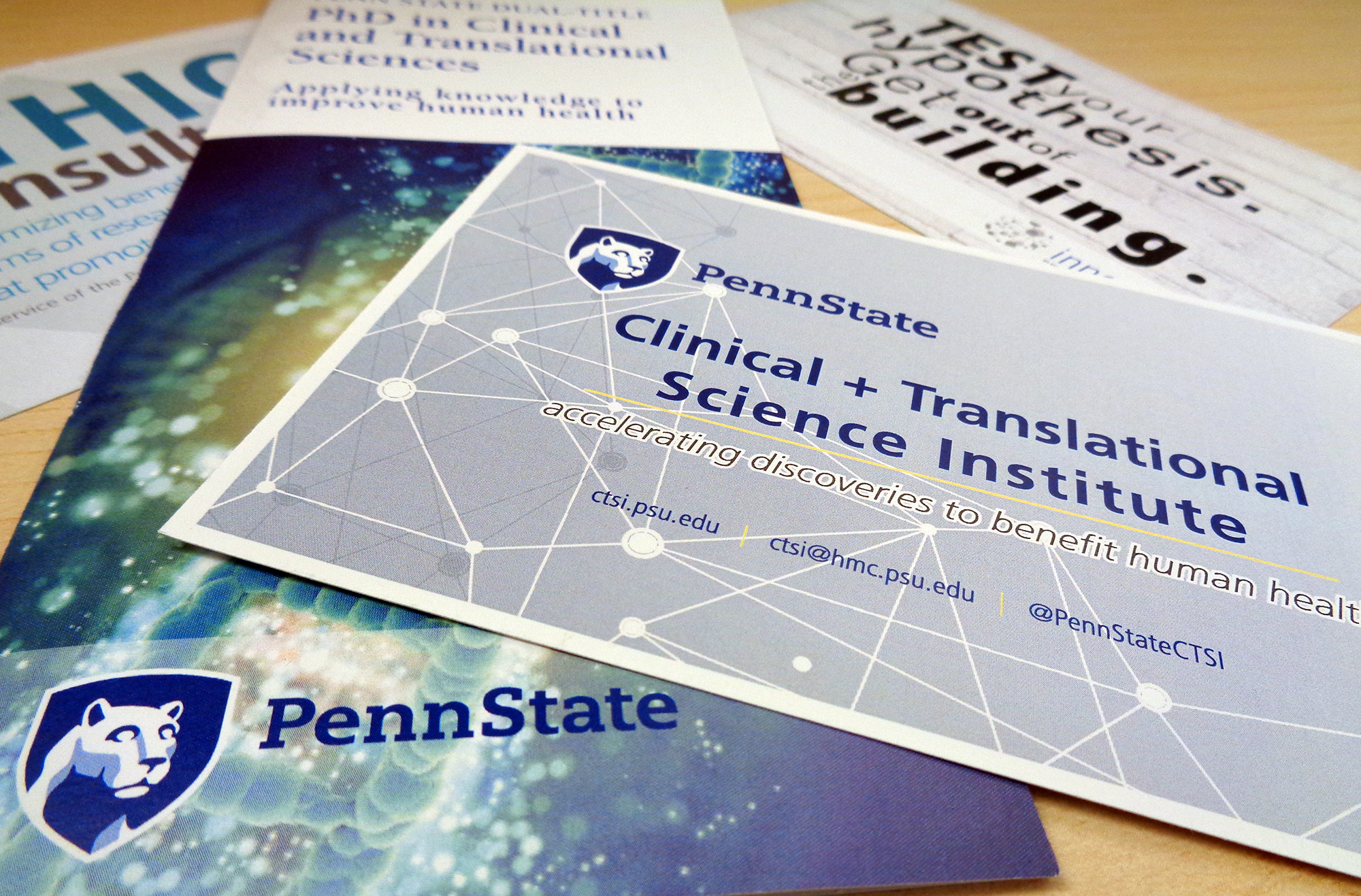
Penn State Clinical and Translational Science Institute is now accepting applications for its Early-Stage Investigator Training Program (KL2) to provide research training. The two-year program is funded through a National Institutes of Health KL2 grant that is a part of Penn State’s Clinical and Translational Science Award.
Applicants must be full-time Penn State faculty with a doctorate (MD, DO, PhD, MD/PhD, DO/PhD or equivalent) at the rank of assistant professor and a focus on translational research.
Selected scholars receive 75% full-time professional effort for their career development, $25,810 per year for research-related costs and research training during the mentored phase.
“The K program was extremely important to me because it gave me the protected time that I needed as a scientist to really focus on refining my research approach, and improving my skills in grant writing and paper writing,” Steven Hicks, MD, PhD, a former scholar in the program from Penn State College of Medicine, said. “These are things that are difficult for pure clinicians to do because we're often busy trying to make sure we take good care of our patients.”
Scholars work on building their research programs and focus on a specific project. Former scholar Winnie Adebayo, PhD, from Penn State Ross and Carol Nese College of Nursing, focused on increasing proactive sexually transmitted infection testing and reducing infection transmission rates among youth.
“After two years, I can honestly say that it's up from here because I have so much that I have gained completing this project,” Adebayo said. “I had the funds to do it, the protected time to do it, the collaboration, the resources, the people who are always willing to help. That's honestly something that you can't completely account for.”
The program is led by Chris Sciamanna, MD, and Lorah Dorn, PhD, and involves faculty from across the university sharing their expertise.
“The great part about the K program is all the senior investigators that are involved with it,” Kathleen Sturgeon, PhD, a former scholar in the program, from Penn State College of Medicine, said. “For me, I felt like I had a really strong concept and direction and some really great mentors, but being new to Penn State, there are so many resources that Penn State has. Understanding where they are and who's the person to talk to for them was really something that just accelerated what I was able to do, not just from a science standpoint, but from an infrastructure standpoint. And that's a learning curve that, for me, the K program was really beneficial for.”
Two webinars will be held to review the process and to answer questions. The webinars will be held at 9 a.m. on Friday, Sept. 10, and at noon on Thursday, Sept. 16. Registration is required to attend these webinars. Register for the Sept. 10 webinar here. Register for the Sept. 16 webinar here. Webinars will be available on-demand after the live event.
Letters of Intent are due by Oct. 15. Full applications are due Nov. 22. Funding is expected to begin in April 2022.
Learn more about the application process and the program here.